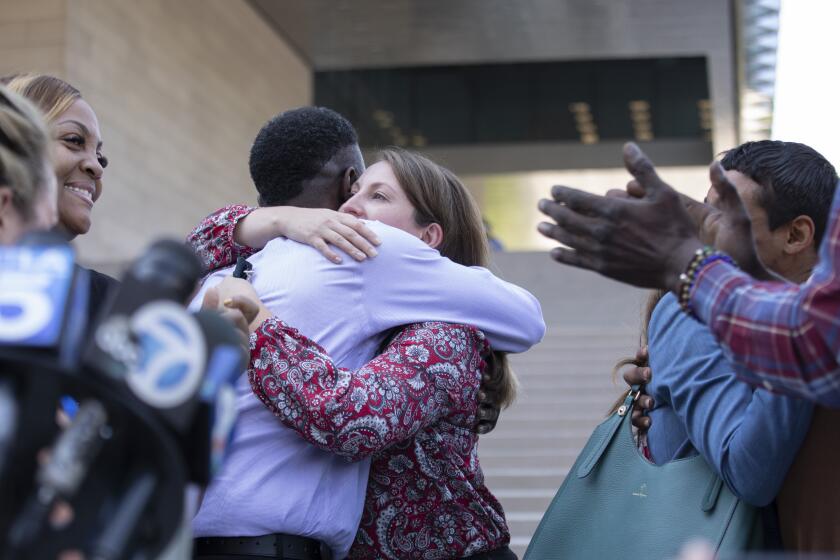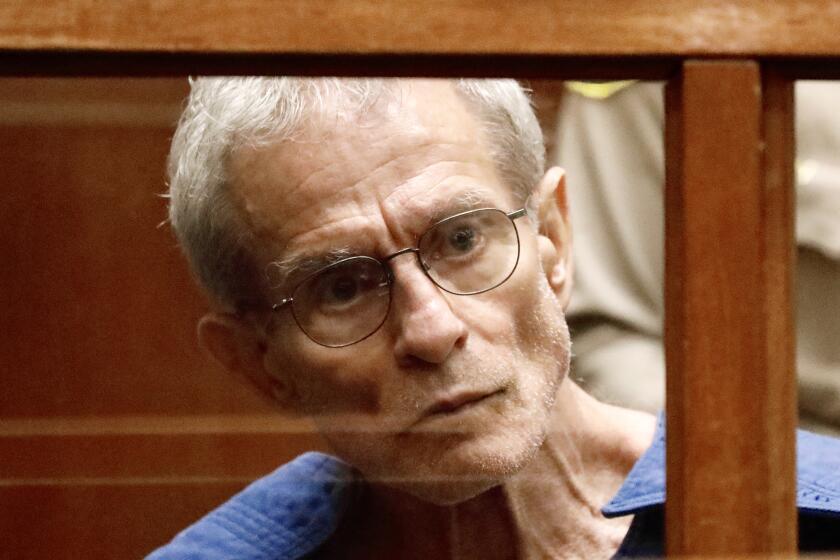âHe was a white man who had moneyâ: Ed Buckâs Black victims fought to be believed
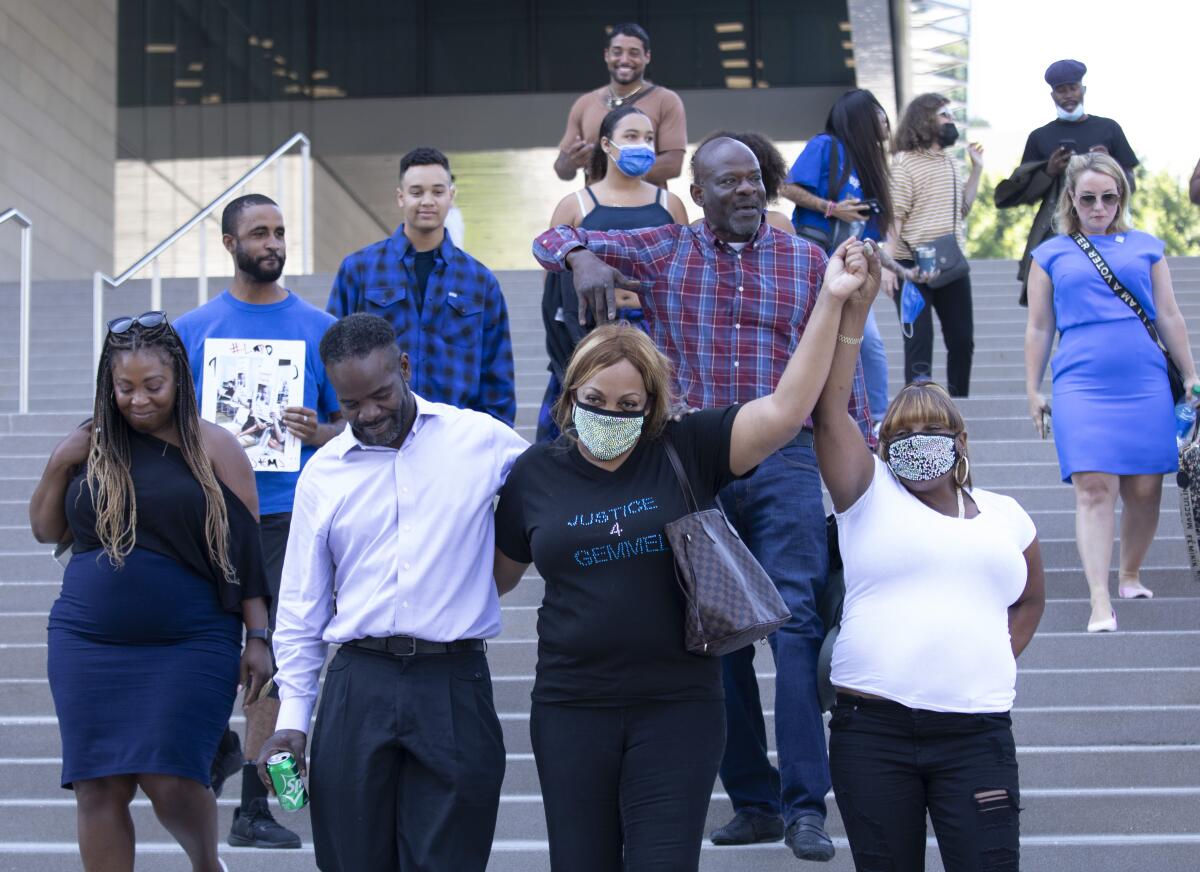
Before he testified in federal court about Ed Buck injecting him with methamphetamine, one manâs anxiety sent him to the hospital.
Others who had planned to testify against Buck, who was convicted this week in the overdose deaths of two Black men in his apartment, couldnât bring themselves to do it. Some wept on the witness stand.
Before testifying, Dane Brown, whose near-fatal overdose led to Buckâs 2019 arrest, did deep breathing exercises and tried to steel himself for his character being publicly questioned since he was homeless and in the throes of addiction when he last saw Buck.
âI was extremely nervous and scared,â Brown, 39, said of testifying.
âThe drug addiction â people will look at that and say, âHeâs not telling the truth; heâs an addict, so he canât be believed,ââ Brown said. âIn reality, you just want to tell whatâs going on, the hurt and pain in your life.â
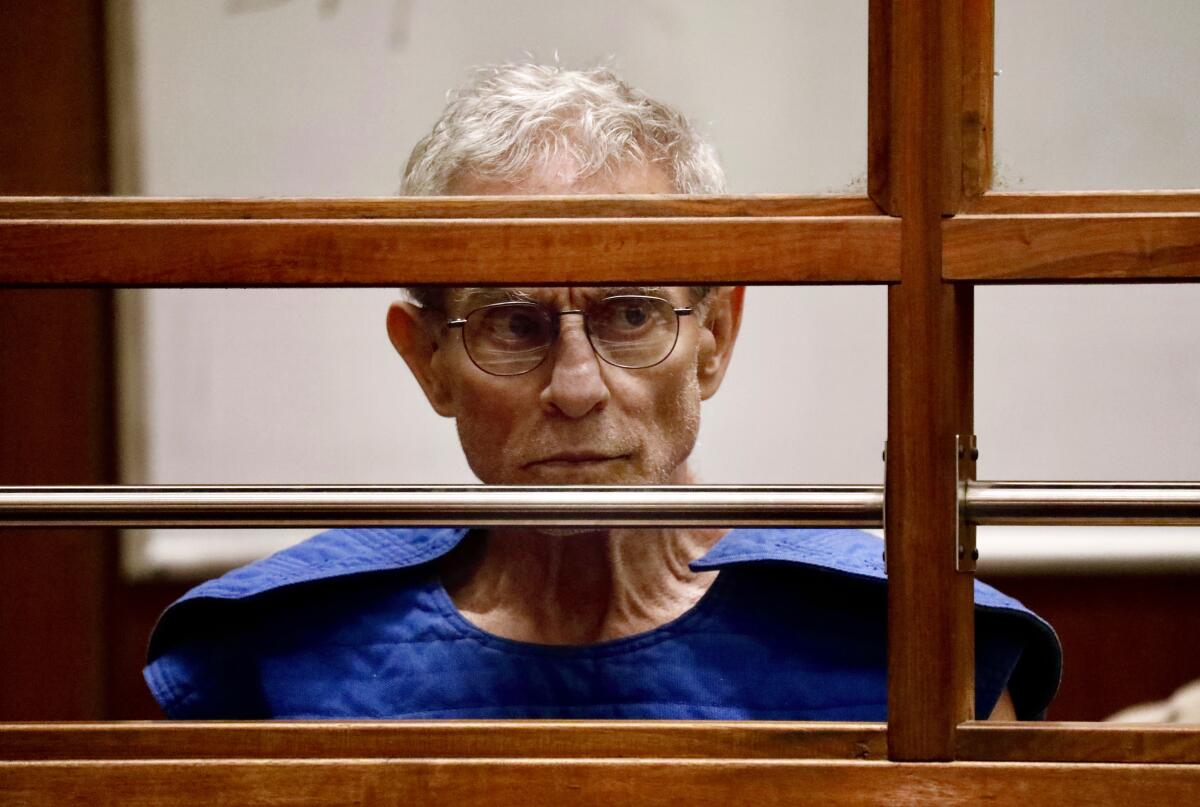
When a jury found Buck, 66, guilty of every charge in a nine-count indictment, victims and the families of the dead men felt a deep sense of relief and vindication. But the victory was bittersweet for those who crusaded for four years to hold Buck accountable in the face of what some said was silence by many Democrats and by local prosecutors.
Simply being believed, they said, was an uphill battle.
Victims â mostly young Black men whom Buck paid to let him inject them with methamphetamine in his West Hollywood apartment â said they felt like no one cared what happened to them.
The families of Gemmel Moore, who died in July 2017, and Timothy Dean, who died in January 2019, say they were humiliated by âvictim shamingâ in court and outraged by disparagement of the dead men by politicians and the media.
Even after Buck was found guilty, facing the possibility of spending the rest of his life in prison, they said they still felt like they had to defend their loved ones.

âMy son was more than an âescort,â more than a âprostitute,â as many of you guys said,â LaTisha Nixon, Mooreâs mother, told news crews outside the courthouse Tuesday, the day Buck was convicted and the four-year anniversary of her sonâs death.
âThis is my baby. My son. He was a human being, and he was loved by lots of people.â
Buck, a onetime candidate for West Hollywoodâs City Council, gave more than $500,000 to political candidates and causes, almost all of them linked to the Democratic Party, since the mid-2000s.
âIt was an uphill battle just because he was a white man who had money,â said Jasmyne Cannick, a political strategist and advocate for the victimsâ families. âEven if you take the âDemocratic donorâ part out of it, you have a white man who lives in West Hollywood, and you have these Black victims who are sex workers. The scale is immediately uneven.â
Cannick, a member of the L.A. County Democratic Partyâs Central Committee, said she has been disgusted by politiciansâ silence about the case.
âIf these were a bunch of white women, it wouldnât have gotten this far,â she said.
Activists have put public pressure on the dozens of elected officials who received donations from Buck and implored them to give the money to his victims, some of whom are still homeless.
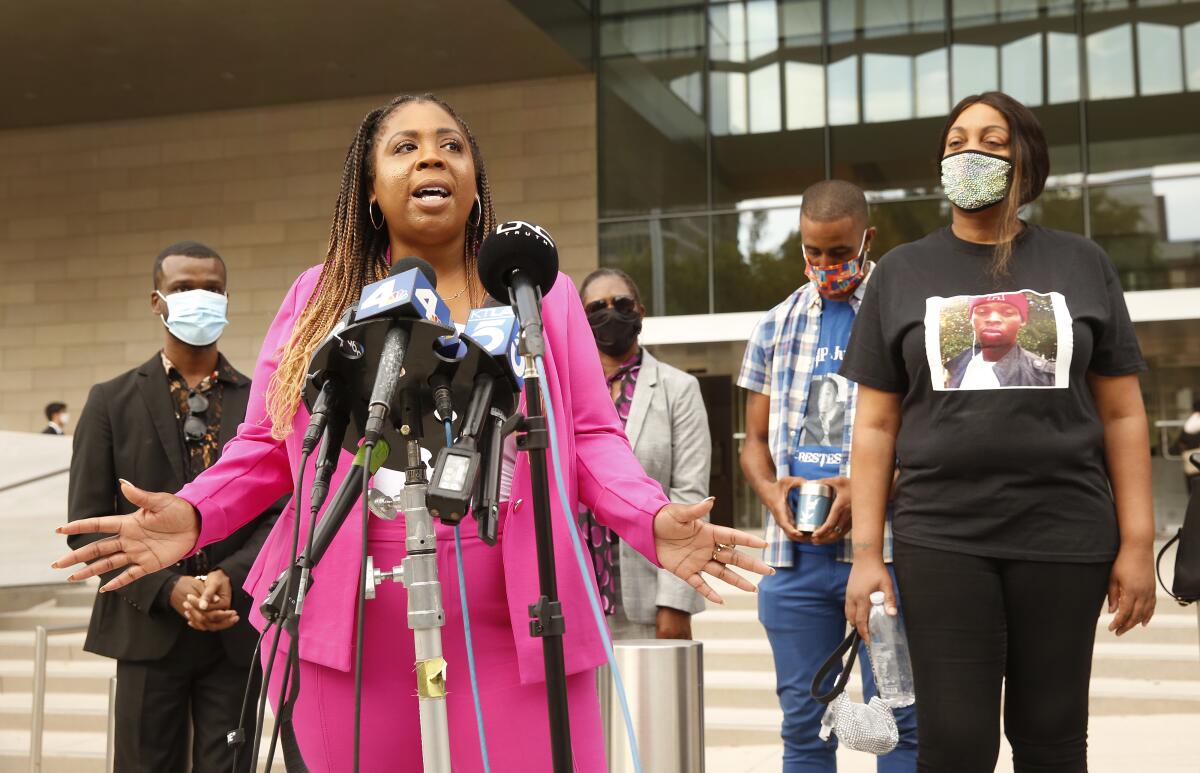
Since the mid-2000s, the three current California officeholders who received the most money from Buck were: U.S. Rep. Ted Lieu (D-Torrance), who got $25,600; L.A. City Councilman Kevin de LeĂłn, who got $20,700; and L.A. City Atty. Mike Feuer, who got $18,400.
Lieu said in 2019 that he donated campaign contributions from Buck to LGBTQ and Black civil rights organizations. A spokesman for de LeĂłn told The Times the councilman had given the funds to a nonprofit that assists survivors of domestic violence and sexual assault.
A spokesman for Feuer said that in March 2018 the city attorney donated $2,000 to the Los Angeles LGBT Center, âthe same amount that Ed Buck had contributed to Mr. Feuerâs open Officeholder Account.â
During a Zoom meeting with a homeowners association group last fall, L.A. City Councilman Paul Koretz, who received $2,200 from Buck, was questioned about whether he had returned the money.
Ed Buck is found guilty exactly four years after Moore, 26, died of a methamphetamine overdose in Buckâs West Hollywood apartment.
In a video of the meeting provided to The Times this week, Koretz said he was trying to find an âappropriate, supportive institutionâ â such as a program that aims to train Black doctors â âbecause all of his victims were disadvantaged Black hustlers.â
In an interview Thursday night, Koretz said he has tried to make donations to a few charities but that it has been hard to find one âwilling to accept my penance ... even though thereâs nothing wrong with having innocently taken this money.â
Koretz, a former West Hollywood city councilman, said he used the word âhustlersâ because âthat was the term for a male prostitute,â of which, he said, there were many during his years in the city.
He said itâs a âfrustrating implicationâ that Buck was not prosecuted for so long because he was a contributor to Democratic campaigns and that he thinks Buck âgot away with it for a while because no one could believe it.â
For years, Black LGBTQ activists worked to keep the case in the spotlight, protesting at West Hollywood City Council meetings, holding public vigils for Moore and Dean, and leaving bags of coal outside Buckâs apartment complex each Christmas.
âI talked to whoever would listen,â said Nixon, the first person to question whether the drugs that killed her son were self-administered. Days after Moore died in 2017, after an initial review by sheriffâs deputies found nothing suspicious, Nixon blasted emails to journalists, asking them to look into it. Few, she said, believed her.
It was only in September 2019, after Brown, who is Black, nearly died of an overdose, that Buck was arrested. In July 2018, the L.A. County district attorneyâs office declined to press charges, a decision that caused political trouble for former Dist. Atty. Jackie Lacey in her unsuccessful run for reelection.
During the two-week trial, Buckâs lawyers, Christopher Darden and Ludlow Creary, portrayed his accusers as untrustworthy drug addicts out to make money who did drugs with him willingly.
A prosecutor accused West Hollywood suspect Ed Buckâs defense of âdespicable victim shamingâ as the case goes to the jury for deliberations.
After Jermaine, a 31-year-old Black man, testified that Buck injected him with meth during multiple visits in 2018, Darden asked him why he did not report his client to authorities.
âHeâs a politician,â said Jermaine, who was homeless but now lives out of state. âI donât live here. It donât make any sense.â
Buck was not a politician. But several men testified that he led them to believe he was well-connected and influential.
The Times is withholding the last names of witnesses who testified about sexual activity with Buck. Some alleged sexual assault while they were asleep or passed out.
Brown, who used his first and last name in interviews, said that during summer 2019, when he lived with Buck for six weeks and was injected with meth by him daily, Buck constantly monitored news coverage about himself.
Buck, he said, had a Google alert for the words âEd Buckâ and âJasmyne Cannickâ and seemed certain his name would be cleared.
âHe told me he was being framed for the deaths,â Brown said. âHe became obsessed with it.â
After Brown fled Buckâs apartment that September, he feared he would not be believed. Brown, a self-described computer and video game geek who is now employed and remaking his life, was mortified to talk about âthe lowest point of my life,â when he was homeless and addicted.
But testifying, he said, gave him a sense of power. After the conviction, he stood in front of a bank of TV news cameras outside the courthouse and said he and the other victims are worthy of justice.
âDonât forget about us. Iâm not a sex worker. I may have been an addict. But these people need to be heard, and these people need to be helped. Listen to them when they have a story. Believe them when they need help.â
Times researcher Maloy Moore contributed to this report.
More to Read
Sign up for Essential California
The most important California stories and recommendations in your inbox every morning.
You may occasionally receive promotional content from the Los Angeles Times.
